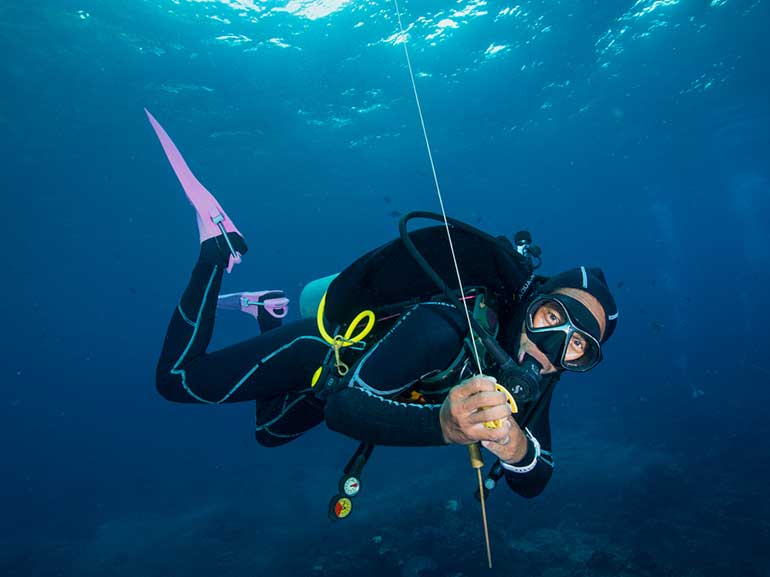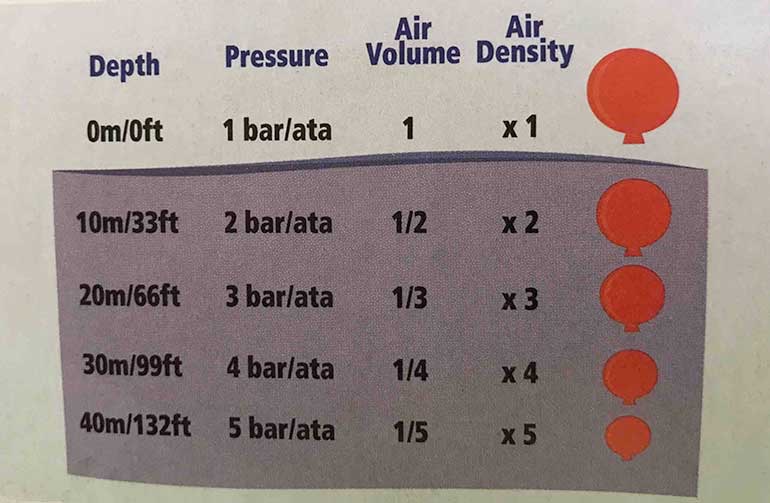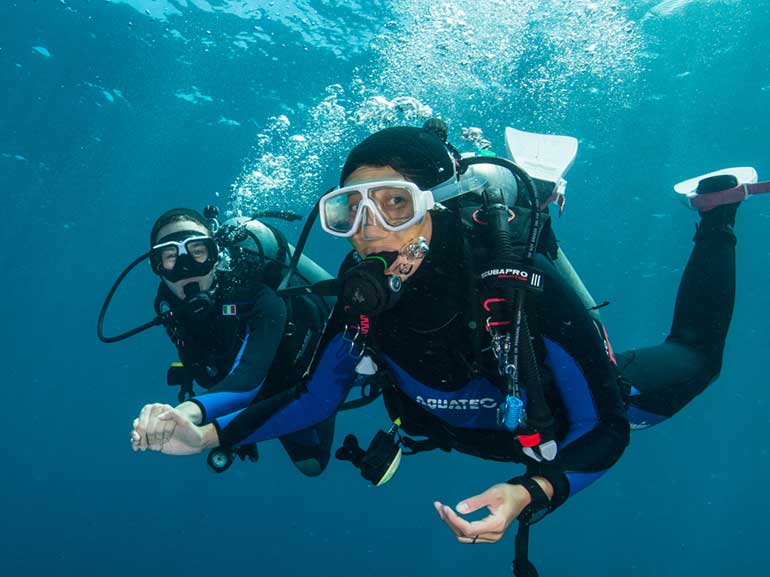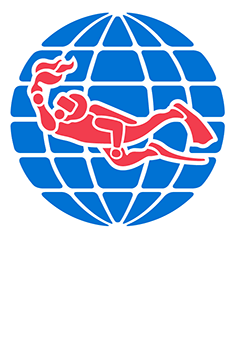
Some of the most frequently asked questions we get from new divers all relate to air consumption. On your PADI Open Water Diver Course you learn that you must check your gauges frequently and you even have to estimate the amount of air remaining in your tank without looking… So it's natural to be conscious of it and wonder what you can do to improve your air consumption.
A lot of it comes with time as you gain more confidence and therefore relax more when you dive, but there are things you can do to help you improve your air consumption along the way. There are also some things that you need to consider before you worry too much about your own air consumption such as your lung volume and how deep you are as well as how you are feeling before the dive. We must also add, that you should never, ever lie about your air consumption when your buddy or guide asks you!
Let's take a look at what you can control, what you can't and how this can help you…
There are probably some small changes you can make that will help to improve your air consumption.
Make sure you are correctly weighted and in trim. If you are overweighted, the lower half of your body will drag down and you won't be horizontal, so you end up kicking more to stay neutral (which uses more air). You will expend more effort, breathe harder and use your air faster if you are not correctly weighted.
Sometimes, even when you are correctly weighted, your position may feel a bit off or unbalanced when you dive… This likely means that you need to adjust your trim.
You can make IMMEDIATE changes to improve your air consumption simply by adjusting your weights and trim.
What is trim? It's your balance in the water and the positioning of your weights around your body. You can place your weights on a weight belt, in your BCD's weight pockets, attach them to the tank strap or place them in trim pockets, and you can even get ankle weights if you find that your legs or feet are often annoyingly floating up. Play around with the positioning of your weights on the belt itself as well as the other possible places to put them until you find the sweet spot that keeps you as horizontal as possible.
You can read more about finding the correct weighting in our blog post, and you can get help with your buoyancy by taking the PADI Peak Performance Buoyancy specialty course.

You don't have to be a marathon runner or a weight lifter, but keeping yourself in good fitness will help you out if you find yourself in more strenuous conditions than you're used to (like a current, for example).
Although it's not advisable to do strenuous exercise right before or right after a dive, keeping yourself fit with 30 minutes of cardio 5 times per week will help to keep your heart healthy and will help to make your heart rate recovery time faster.
It's easy to say, but try to REEEEELAX! The more relaxed you are, the calmer your breathing will be. To calm your breathing, try making your exhale longer than your inhale for a few rounds. Those of you who practice yoga or pranayama may be familiar with this concept! There are also some apps out there to help you breathe more calmly.
A fun way to make your exhale last longer than your inhale is with a song… Hum out a long line of your song through your regulator on the exhale! (We like the guitar riff from "Smoke On The Water" by Deep Purple). Give it a try next time!
Needless to say, if you are more relaxed underwater, your breathing will be more calm and this instantly can help to improve your air consumption. Don't forget also, if there is something about the dive that is making you anxious or worried, talk to your buddy or guide about it and don't be afraid to call the dive if ultimately you don't feel up for it.
Although these things cannot be changed, it doesn't mean you can't extend your dive time just because you can't make a change that will directly improve your air consumption.
Diving deeper, you will use your air faster, and there's nothing you can do about that! Every diver, no matter their experience will use their air faster at depth. The air is compressed when it travels through the hoses from your tank to your regulator, and the density of the air you breathe is directly affected by the surrounding pressure. The deeper you are, the faster you will use your air.

You learn this on your PADI Open Water Diver course and it is reinforced on your Advanced Open Water Course (with the Deep adventure dive) and also on your Deep Diver specialty. Although how much air you take in at depth won't change, by knowing this you may want to limit your time at depth and spend longer in the shallows.
Every single person's body is unique, and therefore our lung size and lung capacity will be too. Do you think that a person who is 1,5m tall has the same sized lungs as someone who is 1,8m tall…? No? You'd be absolutely correct! People who are taller / broader will have bigger lungs and therefore a larger lung capacity than people who are shorter / more petite. The bigger the lung capacity, the more air you draw in from your tank with each breath. There's isn't anything you can do about that, but whatever size your lungs, by practicing relaxation and breathing techniques to help you relax (and by doing the other things above), you will improve your air consumption over time.
You may also want to enquire about whether there are any larger capacity dive tanks available.
We cannot stress this to you enough! We know it's really hard not to compare with your buddy or be envious of your guide's amazing air consumption (do they have secret gills?!), but it is in your own interests to be honest about your remaining air.

By being honest about your air consumption with your buddy or guide, you can adjust your profile in most cases so that you ascend to a slightly shallower depth sooner, where your air will last longer. If you tell a little white lie about your remaining air (for example telling them that you have 10 or even 20 bar more than you have), this could land you into some trouble!
Usually we ask our divers to tell us when they reach 100 bar, then 70 bar and then finally 50 bar… This is all so that we can plan to profile of the dive accordingly and make it a longer dive for everyone. When you signal to your guide that you have 100 bar, they will bring you a bit shallower… When you signal to your guide that you have 70 bar they will start to make preparations for the safety stop, so that by the time you reach 50bar, you can directly ascend to the surface.
Needless to say, if you don't do this, then you may find yourself in deeper water (both literally and figuratively) when your air runs low. That can lead to panic, which will only make you use your air faster.
Ultimately, being honest about your remaining air won't improve your air consumption, but it will help you to have a longer dive time!

